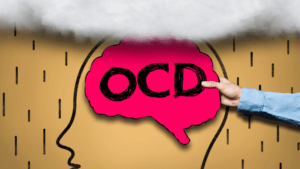If you’re living with Obsessive Compulsive Disorder (OCD), finding the right help can be a challenge. It’s not easy to find the best treatment when there are so many options available. Fortunately, some resources can help you find OCD help near you. In this blog article, we’ll discuss how to get started with your search and provide advice on what to look for in an OCD therapist or support group. By the end of this post, you should have a better idea of where to turn for help and understanding when it comes to OCD.
Contents
What Is OCD?

If you have OCD, you may feel like you’re in a constant battle with your mind. Your thoughts can feel out of control, and they may be intrusive and unwanted. You may try to keep them away by performing certain rituals or behaviors, but they always seem to come back. This can make you feel like you’re stuck in a never-ending cycle of anxiety and fear.
OCD is a type of anxiety disorder that can cause significant distress and impairment in your daily life. It’s characterized by obsessions, which are persistent and unwanted thoughts, impulses, or images that trigger intense anxiety, and compulsions, which are repetitive behaviors or mental acts that you feel driven to perform to reduce the anxiety caused by the obsessions.
OCD can affect anyone at any age, but it typically begins in adolescence or young adulthood. It affects men and women equally. OCD can be debilitating, but there is hope—with treatment, most people with OCD can get significant relief from their symptoms.
How To Find OCD Help Near Me?
There are many ways to find OCD help near you. Here are some options:
Talk To Your Doctor
One of the best and most efficient ways to find OCD help is to talk to your doctor. Your doctor will be able to refer you to a mental health professional that specializes in treating OCD.
Look For Support Groups
There may be an OCD support group near you. A support group can provide a safe, non-judgmental space for people affected by OCD to talk about their experiences and share tips and strategies for managing the condition. You can search online or contact local mental health organizations for more information.
Search Online For Therapists Specializing In OCD
You can search online for therapists specializing in OCD treatment, such as cognitive-behavioral therapy (CBT). Be sure to check out reviews from other patients before committing to any particular therapist.
Reach Out To Mental Health Organizations
Many national and local mental health organizations can provide information about OCD treatments and resources available in your area.
Go To A Mental Health Clinic
Your local mental health clinic may offer specialized OCD services, such as group therapy or individual counseling.
Different Treatments Offered by Professionals

There are a variety of treatments available for OCD, and the best course of treatment will vary from person to person. Some people may benefit from medication, while others may find that cognitive-behavioral therapy is more helpful. Here are some different treatments that may be offered by professionals:
Medications
One of the most common treatments for OCD is medication. Anti-anxiety medications, such as selective serotonin reuptake inhibitors (SSRIs), can help reduce the symptoms of OCD.
Cognitive-Behavioral Therapy (CBT)
CBT is a type of talk therapy that focuses on changing thought patterns and behaviors related to OCD. A therapist will work with the individual to recognize what triggers their obsessions and compulsions and then develop strategies for dealing with them.
Exposure Response Prevention (ERP)
ERP is a type of cognitive-behavioral therapy that involves exposing someone to situations or items that trigger their OCD symptoms, but without engaging in any compulsive behaviors. Over time, the person will learn how to resist the urge to perform their compulsion. It leads to less severe symptoms over time.
Behavior Therapy
Behavior therapy is an approach used by psychologists that focuses on rewarding desired behaviors while eliminating undesirable ones. It can be used in combination with CBT or ERP, or it may be done on its own, depending on the individual’s needs.
Meditation and Mindfulness Training
Mindfulness training teaches individuals how to practice mindful awareness and focus on the present moment without judgment. This can be helpful for people with OCD, as it allows them to observe their thoughts and feelings without getting overwhelmed or engaging in compulsive behaviors.
Biofeedback
Biofeedback is a type of therapy that uses technology to teach individuals how to control their body’s functions, such as heart rate and muscle tension. This can help people with OCD learn how to relax and healthily manage their symptoms.
Group Therapy
Group therapy is a form of talk therapy that involves meeting with a group of people who all have similar issues or concerns. This can be beneficial for people with OCD because it allows them to share their experiences and learn from each other.
Benefits of Getting ” OCD Help Near Me”

There are numerous benefits to seeking “OCD help near me” rather than trying to manage it alone. These benefits include:
1. Expert Guidance: Having the support of a therapist or other mental health professional can make a big difference in managing OCD symptoms and creating healthier coping strategies.
2. Increased Accessibility: When someone can get help close to home, they are more likely to make use of treatment services and follow through with their care plan. This can lead to better outcomes in the long run.
3. Improved Self-Awareness: Working with an OCD expert can also help individuals gain insight into their thoughts and behaviors, which can be beneficial for making positive changes over time.
4. Enhanced Support Network: Being able to access services locally also provides an opportunity for those struggling with OCD to connect with others who understand what they’re going through and offer assistance when needed.
5. Cost Savings: Finally, seeking local treatment options can often be more cost-effective than traveling to receive care elsewhere.
Conclusion
Finding OCD help near you can be a daunting task for many. However, there are several options available to those seeking treatment and support. These are such as Cognitive Behavioral Therapy (CBT), Exposure Response Prevention (ERP), online resources and discussion forums, local support groups and clinics, as well as medications. Taking the first step towards getting professional assistance is often the most difficult part of recovery from Obsessive Compulsive Disorder. With all of these options available, it’s important to talk with your doctor or therapist. This is about which one may be best for you so that you can receive the help that’s right for you.
For more information and guidance, please contact OCDMantra. OCD is a mental health disorder characterized by obsessions and compulsions. If you have any queries regarding OCD treatment, ERP therapy experienced therapists at OCDMantra can help: Book a trial OCD therapy session.


